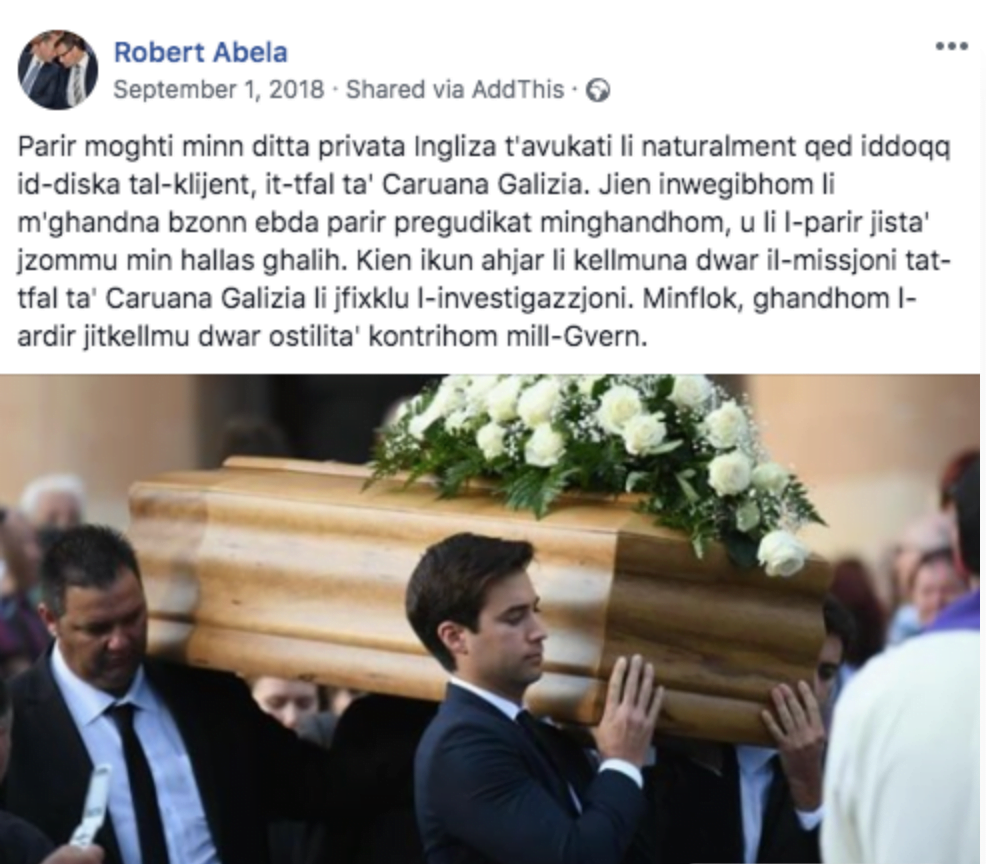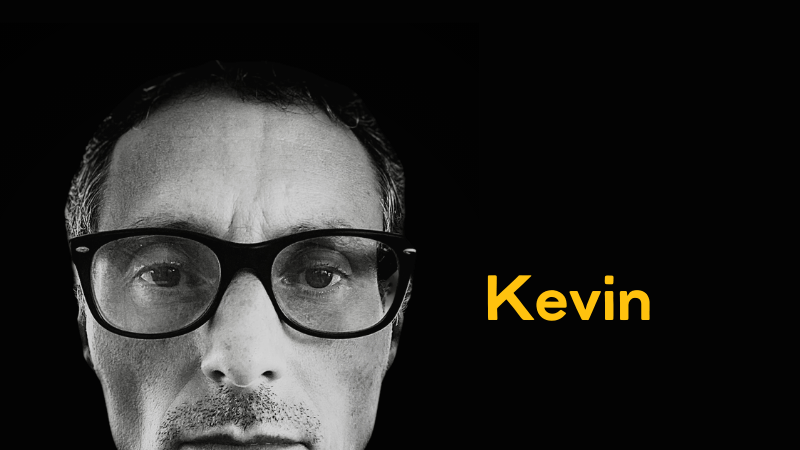Glenn Bedingfield, in his latest parliamentary streak of callousness, was once again attacking Daphne Caruana Galizia’s family. Abusing of his parliamentary immunity, he vindictively accused the bereaved family of “not having an interest in discovering the whole truth” about the journalist’s assassination. He claimed that the family had ordered the destruction of evidence. He demanded action be taken against them.
He pronounced that he never abused his right to free expression. The irony was completely lost on him as he bragged that “I have no hesitation in saying what I have to say – that is why we live in a democratic society”. In that very democratic society, Caruana Galizia paid with her life for exercising that same right. And ever since, her family has endured the insolence, abuse and intimidation of Bedingfield and his friends.
Robert Abela outshone Bedingfield in vicious malice. Echoing Bedingfield’s falsehoods he attacked Caruana Galizia’s family: “They are more interested in their repugnance for their country than finding those who are criminally responsible for the assassination”. He has since retracted that statement but Bedingfield, his Party Whip, took it forward.
In her reportage on the trial of Adolf Eichmann in Jerusalem, Hannah Arendt reported on the Jewish councils’ collaboration with the Nazis in overseeing the selection process for the deportation of their fellow Jews to death camps. Philosopher and historian Gershom Scholem was incensed. He wrote to Arendt: “There is something the Jews call Ahavath Israel – the love for the Jewish people. With you, my dear Hannah, there is no trace of it”.
Arendt was persecuted by her own people for telling the truth. Like Daphne Caruana Galizia and her family she was accused of not loving her own people.
But instead of refuting the accusation, Arendt agreed. “How right you are that I have no such love,” she replied, “and for two reasons”. First, she had never loved some nation or collective – she only loved friends. Secondly, she was being asked by her own people to overlook factual truth, reality, to deny something that had happened. To defend her own people, she was expected to lie. And she would not lie.
Arendt suffered abuse, humiliation and ostracisation for stating the factual truth. But she was not assassinated. Caruana Galizia was.
In response to Scholem, Arendt wrote her famous essay, ‘Truth and Politics’ published in the New Yorker. In it, she highlighted the fragility of factual truth under the systematic assault of authoritarians. And the vulnerability of truth tellers throughout history – from Socrates to Martin Luther King.
Arendt defined fascism in various ways – autocratic, riven with nationalistic and racist rhetoric. But the defining feature of fascism was political opposition to the facts. Fascist regimes treat facts like enemies. And when governments are not required to respect facts they can say things and then claim never to have said them. They are free to categorise specific people as threats or criminals, haters of the country, without evidence.
And this is what Glenn Bedingfield and Robert Abela are up to. Repeatedly Abela has attacked the family of the assassinated journalist. He accused them of “using their proximity to the investigation to further their own political agenda”. He expressed his hostility against Caruana Galizia’s children by charging them with having a “mission to hinder the investigation”. And then branded them “shameless for speaking of government hostility towards them”.

For years now, Malta’s government has intentionally muddied the waters with disinformation from its very core. Then deputy chief of staff to the Office of the Prime Minister, Alex Muscat, penned an article in The Malta Independent just days after the assassination. “Was this murder being used to promote someone’s agenda to taint our reputation?” he questioned. “I am sure nobody is buying the political murder story,” he proclaimed.
And to deflect the focus away from the den in Castille, he stated: “It has been reported that the blogger was recently investigating Maltese links to the Libya-Italy fuel smuggling racket. A number of other similar killings (sic) in recent years have been linked to this racket”.
Why did Joseph Muscat’s deputy chief of staff attempt to link the assassination to fuel smuggling just days after the event? Why was he ascribing an agenda to the anonymous “someone”?
Bedingfield, who desperately prevented the Public Accounts Committee from asking legitimate questions of Paul Apap Bologna, Yorgen Fenech’s business partner, brags in parliament that for him the truth is sacrosanct. In the same breath, Bedingfield maliciously concocts false narratives and accusations against the bereaved family.
Arendt summed Eichmann up – he lacked the capacity to imagine the perspective of others. He was devoid of empathy and could not understand how his actions would affect others. He was not a monster, yet he was still capable of evil. Evil is not radical. It is carried out by ordinary people. He lacked the self-reflective critical thinking that conditions others against committing evil.
Arendt’s diagnosis of Eichmann’s banality was not intended to minimise the harm he inflicted but to underscore his mediocrity. His banality underscored the susceptibility of unremarkable men to collaborate in spectacular crimes.
Like Eichmann, Bedingfield’s hackneyed speech reflects the unoriginality of his mind. He repeats what Joseph Muscat’s deputy chief of staff pronounced four years ago, and what his own prime minister Robert Abela expressed in his outbursts against the family. His speech reflects a thought process fatally clogged with grandiose vacuous malignity. But inanity does not exculpate.
While Bedingfield constantly adjusts his clown act, we may get pleasure from his foolery. But turning agents of cruelty into fools risks making them a source of amusement. While we secretly, guiltily itch to keep watching their risibility, the consistent broadcasting of such savagery becomes its own form of normalisation.
Since Joseph Muscat’s noxious advice to Simon Busuttil to “simply head to Bidnija” to protect Malta’s reputation, Labour has not mellowed. Even after the horrific assassination of Caruana Galizia, Bedingfield and company continue to derive genuine delight from poking the agony of the bereaved.













Another excellent reasoned summary of everything that is wrong at present in Malta and the analogy with fascism is telling.
The fiefdom of Malta seeks to convince its subjects that the rest of the world is wrong with its continuing attempted manipulation of the media at every opportunity. It is to be hoped that the FATF vote later today will mirror that of the 93% majority of MEPs who recently voted at the E.U Parliament that they held no truck with Malta’s view that the institutions were working well, when clearly they are not, unless you are desperately clinging on to a warped ideology.